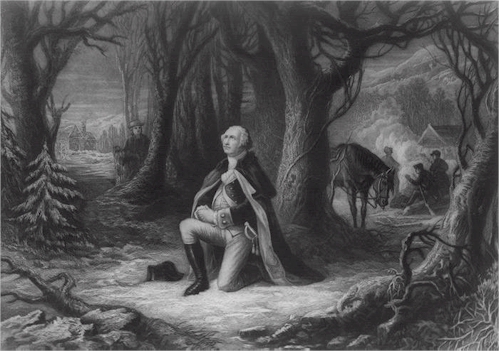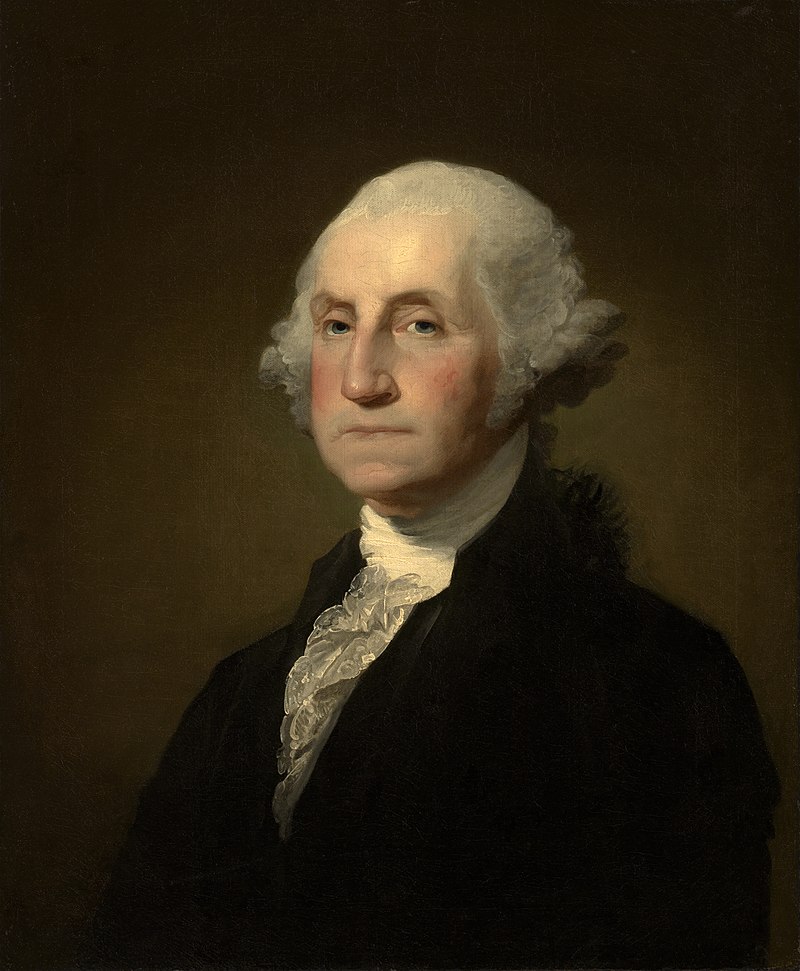
Jeremy Belknap, a patriot, scientist, historian, and minister in the late eighteenth century, wrote during the War for Independence to his friend Ebenezer Hazard, praising General George Washington: “A man is never more truly noble than when he is sensible that he is only a secondary instrument of bringing to pass God’s great designs.”
Indeed, one of the characteristics of George Washington was his humility before God, his realization that Divine Providence, the will of God, was the ultimate reason for American success during the American Revolution.
In his farewell address on leaving the Presidency in 1797, he told the American people:
“Of all the dispositions and habits, which lead to political prosperity, Religion and Morality are indispensable supports. In vain would that man claim the tribute of Patriotism, who should labor to subvert these great pillars of human happiness, these firmest props of the duties of Men and Citizens. The mere Politician, equally with the pious man, ought to respect and to cherish them. A volume could not trace all their connexions with private and public felicity. Let it simply be asked, Where is the security for property, for reputation, for life, if the sense of religious obligation desert the oaths, which are the instruments of investigation in Courts of Justice? And let us with caution indulge the supposition, that morality can be maintained without religion. Whatever may be conceded to the influence of refined education on minds of peculiar structure, reason and experience both forbid us to expect, that national morality can prevail in exclusion of religious principle.”
In short, the American Republic, and the supports of morality, peace, order, and tranquility, could only come about through a sense of reliance on God’s Providence.
He said further:
“Observe good faith and justice towards all Nations; cultivate peace and harmony with all. Religion and Morality enjoin this conduct; and can it be, that good policy does not equally enjoin it? It will be worthy of a free, enlightened, and, at no distant period, a great Nation, to give to mankind the magnanimous and too novel example of a people always guided by an exalted justice and benevolence. Who can doubt, that, in the course of time and things, the fruits of such a plan would richly repay any temporary advantages, which might be lost by a steady adherence to it? Can it be, that Providence has not connected the permanent felicity of a Nation with its Virtue? The experiment, at least, is recommended by every sentiment which ennobles human nature. Alas! is it rendered impossible by its vices?”
Government, therefore, must encourage, enable in its citizenry virtue, which in Washington’s mind was little short than humility before God.
Think of it: a nation, a people, who put God first, who put God’s ways, God’s teachings, God’s will, before all else. Would not such a nation be one of peace rather than conflict, order rather than disorder, love rather than hate?


I’ve always found it fascinating that Washington separated religion and morality in his Farewell Address; I suppose by morality he was talking about the secular side.
Pingback: Providence Crosshairs, I’m Over Those Who Say They Feel “Blessed” | Arts In Action